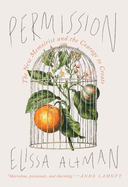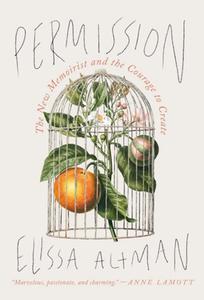
 In Permission, memoirist Elissa Altman offers heartening advice on writing about traumatic family history.
In Permission, memoirist Elissa Altman offers heartening advice on writing about traumatic family history.
Altman (Motherland) and her father, Cy, shared a "non-secret secret": his mother abandoned him when he was three years old. He and his eight-year-old sister spent time in an orphanage and foster home. Although their mother did return home three years later, permanent psychological damage had been done. Cy served in the navy during the Second World War and went into advertising. His dreams of going to university and becoming a poet would remain unfulfilled, as well as his desire to write the story of his mother leaving, because he "had been warned not to." Altman, like her father, felt that the secret "was the story that changed everything I, too, thought," and she was caught in "an intergenerational sin of omission." For divulging the abandonment in her first memoir, Altman became persona non grata in her family. "We did not give you permission. It was not your story to tell. You don't own it," a cousin fumed to her at a relative's wedding.
While acknowledging the emotional pain of being cut out of her family, Altman responds with a defiant mantra she recites to her students: "If this particular story touched you directly, you have every right to write it." To illustrate, she draws on a stunning roll call of autobiographical works: Barry Lopez coming to terms with childhood sexual molestation; Honor Moore revealing her bishop father's bisexuality; Dani Shapiro learning that her father was not biologically related; Tara Westover and Jeanette Winterson enduring religious abuse.
It is worth taking the risk to recount traumatic memories, Altman argues, because it defuses shame. She cautions against writing for revenge and portraying anyone as either wholly good or bad; "what makes for good memoir" is "ambiguity." To that end, she tries to understand her grandmother's motivations, discovering unexpected patterns of inheritance. A Central European immigrant to Coney Island, her grandmother was a pianist before marriage. Altman, too, is musical. Did her grandmother leave to pursue her passion, she wonders. In that case, her father was the second generation in a row to be an artist manqué. The familial connections are almost uncanny: Altman's mother also gave up music to have children; and Altman, who came out at age 34, learns that her maternal grandmother was a secret lesbian.
The book loops through the same stories across its thematic chapters, but fascinating ideas and examples mostly make up for repetition. Practical chapters on giving oneself permission to write by eliminating distractions, devoting time, and developing rituals will be particularly useful for aspiring memoirists. Those captivated by family history will also find much of interest. --Rebecca Foster, freelance reviewer, proofreader, and blogger at Bookish Beck
Shelf Talker: Full of stories drawn from Elissa Altman's life and other authors' experiences, Permission is an inspirational guide to defusing shame through self-disclosure and claiming the time and focus to write.

